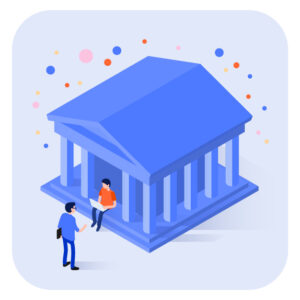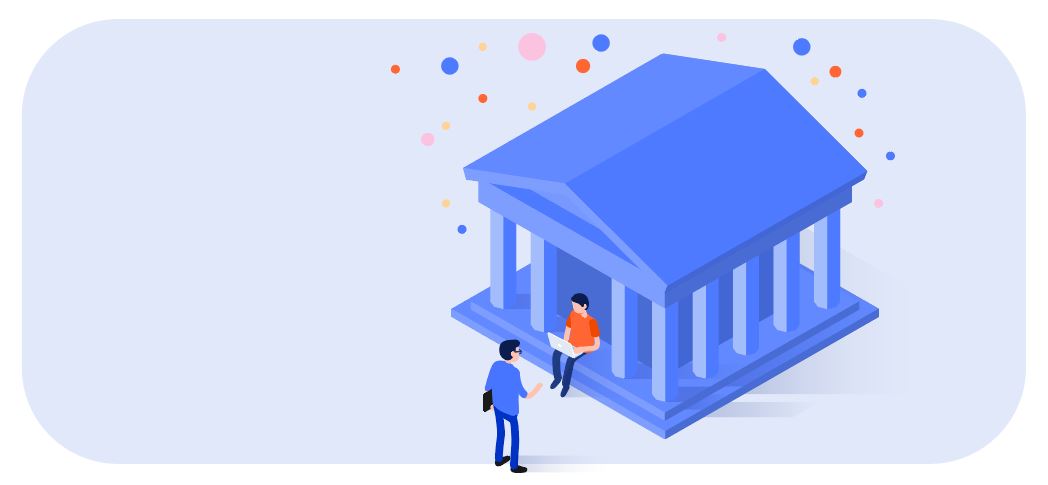Everyone—from department heads to newspaper headings—is urging you to innovate. You are told that innovation is the key to success. It’s the only way organizations get ahead, become more efficient, and improve stakeholder services. But how you innovate is rarely explained. You probably didn’t take a class on innovation in college. And people in your organization seem invested in keeping everything the same. Not to mention that you have day-to-day work to accomplish. When are you supposed to find time to innovate?
Agile Mentoring brings expertise and hands-on techniques into government organizations to address such challenges. It starts by aligning around delivering value and then helping to embed the agile mindset across an organization’s people, culture, and processes at every level. Mentors work alongside an organization’s workers in the real world, imparting learning so that your team can solve current problems and prepare for future ones.
Services for Public Sector
Agile Mentoring combines business and technology expertise to help public sector organizations and federal agencies modernize, address inefficiencies, deliver exceptional services, and become more agile. Mentoring services work collaboratively to help evolve, augment, and scale your organization’s mission-critical tools and advance your transformation goals.
Whether you’re overhauling legacy technology, shifting to a cloud-based shared services tooling model, or working to streamline program or knowledge management, Agile Mentoring can help you modernize your technology and transform your organization so you can improve services.
Cultural Change
Every organization knows they need to innovate and undergo digital transformation, but a 2018 McKinsey study found that only 37% of organizations reported successful implementations of digital transformation programs.
 Why? Technology is accelerating at a faster rate than most public sector organizations can maintain— far ahead of culture and mindset. Unless an organization pays equal attention to developing people and culture alongside technology, its efforts won’t scale. Government organizations face particular roadblocks in terms of siloed information and ingrained work habits. As organizations become more complex, siloed departments and inefficiency can become embedded in the culture, making it difficult to pivot and maintain an edge.
Why? Technology is accelerating at a faster rate than most public sector organizations can maintain— far ahead of culture and mindset. Unless an organization pays equal attention to developing people and culture alongside technology, its efforts won’t scale. Government organizations face particular roadblocks in terms of siloed information and ingrained work habits. As organizations become more complex, siloed departments and inefficiency can become embedded in the culture, making it difficult to pivot and maintain an edge.
Agile Mentoring recognizes that the human element of transformation needs to command more attention. The ability to share knowledge, be creative, and contribute to complex projects is growing in importance. The future is going to be less about leaders instructing teams on what they need to deliver and more about creating an environment in which people can build valuable relationships, feel empowered, and flourish as human beings. Unless large groups of people are collaborating, you can’t unlock the value of individuals. Agencies must be cross-functional and dynamic in order to respond to emerging opportunities and threats.
Hierarchy and bureaucracy are still relevant, but they need to be relaxed so that autonomy and cross-functional work can emerge and adapt to the changing environment. This is particularly true in the government—where the existing culture needs merge with a new adaptive culture to provide better services. Such transformation must be driven from the inside, out.
The Agile Mindset
To shape a culture that embraces this new normal, leaders must transform their own mindsets to align with the future they want to create. By modeling a new set of behaviors, they allow others to adopt a new way of thinking. Agile mentoring can help your agency do this.
If an environment supports their autonomy, workers’ motivation to act in the best interest of the organization grows. Playing with ideas can become a massively enjoyable part of work; employees start to have ideas that help people see the world in a new way, and this makes information flow more easily.
The first step is encouraging workers to recognize their own ideas. They engage with stakeholders and hear their concerns; they’re bound to start thinking of different ways to solve various problems. The solution an employer considers implementing to meet a stakeholder’s need could stand on its own and serve a whole market. This comes along with developing an agile mindset.
Our Workshops
Agile Mentoring kick-starts transformation by uncovering opportunities for change that can immediately improve how your teams work. Designed to address intricate organizational challenges, mentoring sessions bring teams together to form a true understanding of how value is delivered—and where proactive improvements can be made.
By shifting an agency’s mindset from the ground up, Agile Mentoring unlocks your organization to improve processes, solve the day-to-day challenges you face, and begin the journey to organization-wide change.
Agile Mentoring starts by assessing a team’s starting point to understand the current state of delivery and reveal their capabilities and challenges. This helps them to:
- Understand their purpose
- Map current value stream(s) in use to satisfy stakeholder needs (and baseline key metrics)
- Uncover the context within which the work is done
- Baseline an understanding of how the team makes decisions
- Look to develop ways to improve and evolve given the above
The benefits of this approach are:
- Enable continuous learning in the flow of real work
- Identify opportunities to increase flow and reduce waste
- Applying Agile / Lean / DevOps concepts to solve real business problems in the workshop
- Enable collaboration between colleagues in different parts of the organization
- Begin to shift mindset and culture to focus on value, rather than tasks and expertise
We address topics across the three crucial pillars of a software development initiative:
- People and culture
- Process
- Tools and automation
Autonomy
Once employee autonomy is unlocked, government agencies can realize value and provide better services. When you’ve created the conditions in which a capable organization can emerge, it will continue to adapt to the ever-changing environment that it finds itself in.
Listen to our free podcast to learn more about Adaptavist’s Agile approach.







